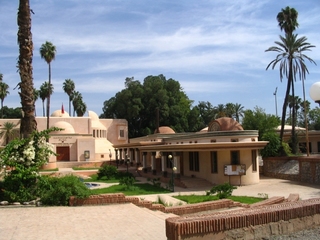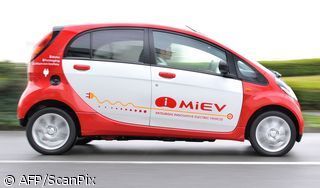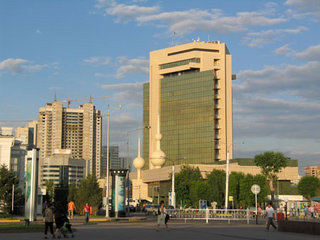Real interest rates mean great returns on the Hungarian forint
Published:
14 April 2004 y., Wednesday
Around the globe, people are looking at Hungary’s real interest rates. With consumer prices up 6.6% year-on-year in January and short-term interest rates close to 12%, there is no other emerging market that offers a better real return on your money.
Massive capital inflows confirm that there is indeed an opportunity. Hot money has pushed up the Hungarian forint to less than Ft 250 per euro. This was the level at which the forint was traded before a flow of adverse macroeconomic data and confused central bank statements drove the currency to its bottom level of over Ft 270 per euro during the second half of 2003.
Is it still worthwhile changing your humble savings into Hungarian forints to benefit from these high interest rates? The answer depends on the exchange rate at which you will convert your money back into your home currency at the end of the day.
Let us suppose you have Ђ100,000 to invest. You can invest it in T-bills from EU countries, giving you a return of around 2%. Alternatively, you change your Ђ100,000 into forints at a rate of Ft 248 and buy Hungarian T-bills for around Ft 24.8 million. This will render you a yield to maturity just below 12%, so that at the end of the year you will own around Ft 27 million.
Provided that you can change your money back into euros at the same rate, you would increase the yield on your investment sixfold compared to investing in euro T-bills! (from 2% to 12%). The problem is that you don’t know the future exchange rate. It is possible, however, to sell the whole amount on the futures market, but only at a rate of Ft 263. Hedging would cost you as much as you would gain from the interest rate differential. Alas, no free lunch.
More interesting returns are available if you’re willing to take a bet on the Hungarian forint. If you’re confident that the forint will stay firm below Ft 263 per euro until the end of December, there is no need to hedge your forint exposure. Is there any reason to be confident about this?
There are, in my opinion, two reasons that make it unlikely that the National Bank of Hungary (MNB) will let the forint depreciate again below a level of around Ft 263 per euro. The first reason is obvious, the second reason more complex in nature.
Šaltinis:
bbj.hu
Copying, publishing, announcing any information from the News.lt portal without written permission of News.lt editorial office is prohibited.
The most popular articles
 On 11 February, heads of state or government of European Union member states will meet in Brussels to seek a commitment towards implementing a revitalised economic strategy to boost employment and growth in the EU.
more »
On 11 February, heads of state or government of European Union member states will meet in Brussels to seek a commitment towards implementing a revitalised economic strategy to boost employment and growth in the EU.
more »
 International Monetary Fund forecasts that Lithuania’s economy will grow 1.6 % this year, making it “the only one of the three Baltic economies expected to be in the positive territory in 2010”.
more »
International Monetary Fund forecasts that Lithuania’s economy will grow 1.6 % this year, making it “the only one of the three Baltic economies expected to be in the positive territory in 2010”.
more »
 Raynair announced it would open its 40th and 1st Central European base at Kaunas, Lithuania’s second largest city, in May with 2 based aircraft and 18 routes.
more »
Raynair announced it would open its 40th and 1st Central European base at Kaunas, Lithuania’s second largest city, in May with 2 based aircraft and 18 routes.
more »
 A new Partnership Strategy for Morocco has been approved by the Board of Executive Directors of the World Bank.
more »
A new Partnership Strategy for Morocco has been approved by the Board of Executive Directors of the World Bank.
more »
 The electric car is an opportunity for European industry.
more »
The electric car is an opportunity for European industry.
more »
 The EBRD’s Board of Directors has adopted a new strategy for Kazakhstan, which reinforces the Bank’s commitment to further support the Kazakh economy and sets out the priorities for its activities in the country over the next three years.
more »
The EBRD’s Board of Directors has adopted a new strategy for Kazakhstan, which reinforces the Bank’s commitment to further support the Kazakh economy and sets out the priorities for its activities in the country over the next three years.
more »
 The European Commission has authorised, under EU state aid rules, plans notified by Sweden to provide a guarantee that would enable Saab Automobile AB to access a loan from the European Investment Bank (EIB).
more »
The European Commission has authorised, under EU state aid rules, plans notified by Sweden to provide a guarantee that would enable Saab Automobile AB to access a loan from the European Investment Bank (EIB).
more »
 At the informal meeting of the Ministers of Competitiveness (Science and Industry), to be held between 7 and 9 February in San Sebastian, the issues on the table will include placing science at the top of the EU agenda and showcasing its role in economic recovery, as well taking the debate on the electric vehicle to EU level.
more »
At the informal meeting of the Ministers of Competitiveness (Science and Industry), to be held between 7 and 9 February in San Sebastian, the issues on the table will include placing science at the top of the EU agenda and showcasing its role in economic recovery, as well taking the debate on the electric vehicle to EU level.
more »
 The Executive Board of the International Monetary Fund (IMF) today approved a 27-month Stand-By Arrangement with Jamaica in the amount of SDR 820.5 million (about US$1.27 billion) to support the country’s economic reforms and help it cope with the consequences of the global downturn.
more »
The Executive Board of the International Monetary Fund (IMF) today approved a 27-month Stand-By Arrangement with Jamaica in the amount of SDR 820.5 million (about US$1.27 billion) to support the country’s economic reforms and help it cope with the consequences of the global downturn.
more »
 Mr. Nadeem Ilahi, chief of an International Monetary Fund (IMF) staff mission to the Kyrgyz Republic, issued the following statement today in Bishkek.
more »
Mr. Nadeem Ilahi, chief of an International Monetary Fund (IMF) staff mission to the Kyrgyz Republic, issued the following statement today in Bishkek.
more »